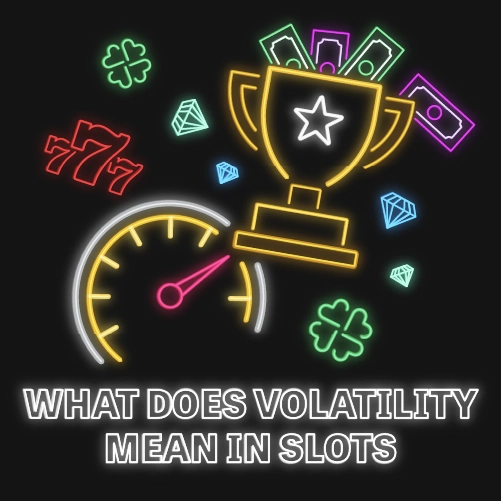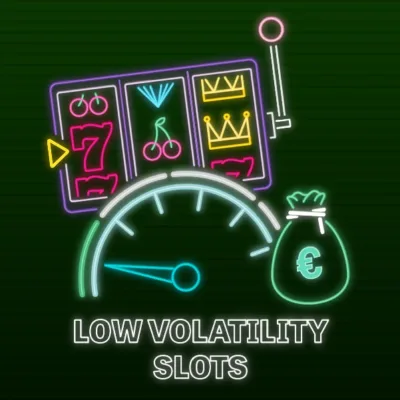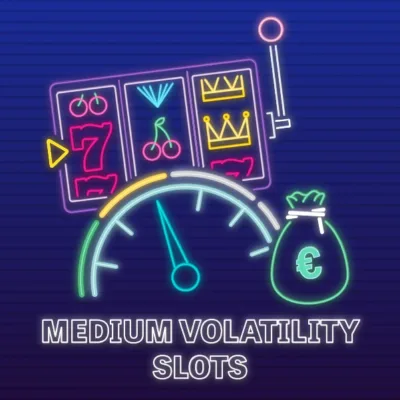We categorise slot volatility into five levels, each representing a different risk-reward balance. If you’re curious to find out more about this, we have listed and explained them below:
⚡ | Type |
|---|---|
⚡ | Low |
⚡⚡ | Low-Med |
⚡⚡⚡ | Medium |
⚡⚡⚡⚡ | Med-High |
⚡⚡⚡⚡⚡ | High |
High

High volatility slots offer fewer but larger payouts, making them suitable for players who are willing to risk more and have larger budgets. The downside of high-variance slots is that players often lose more money playing on high-volatility slots than on any other game.
Med-high
Medium- high volatility slots strike a balance between the frequency and size of payouts, offering a middle ground between high and low volatility slots. In these games, players can expect a moderate level of risk, with a mix of both smaller, more frequent wins and occasional larger payouts.
Medium

Median variance slots offer smaller but more frequent payouts compared to high-volatility slots. One of the key advantages of these slots is that, with proper budgeting, players can enjoy extended play sessions, unlike the higher-risk, high-variance games. Additionally, medium variance slots offer the potential for higher-value jackpots than those typically found in low variance slots, making them an appealing choice for players who seek a mix of both steady wins and the possibility of larger rewards.
Low-Medium
These slots are lower-risk games that offer lower-value win combinations and more frequent payouts than the average volatility slot games. It doesn’t mean that these types of slots are any less enjoyable. Budget well and you could have a long and happy gameplay session with these types of slots.
Low

Low variance slots offer frequent, lower-value payouts, creating a faster-paced and more consistent gameplay experience. When playing their favorite low variance slots, players can expect numerous winning combinations every five to ten spins on average, making these games particularly appealing to newcomers. These slots are perfect for players that often have smaller budgets, which can be extended through the steady stream of small wins that low variance slots provide.
Slot machine volatility calculation
In theory, players can calculate slot machine variance if they know the frequency of symbol combinations and the odds or values attributed to them. However, accurately determining slot volatility involves complex mathematical equations, making it challenging for the average player to do on their own.
Slot machines typically have a volatility index rating that indicates how volatile the game is. Unfortunately, game developers rarely display this information publicly. Occasionally, such details can be found in official Program Accounting Report (PAR) sheets, but these are not always readily accessible.
As a player, there are some indicators you can use to estimate a slot’s volatility:
- Paytable Analysis: The paytable can provide clues about a slot’s volatility. Pay attention to the difference between the payouts for four-of-a-kind and five-of-a-kind symbols. If the payout difference is significant (e.g., 10 to 15 times more for five symbols), the slot is likely high variance. If the difference is smaller, around 3 to 5 times, the slot is probably medium or low variance.
- Prize and Jackpot Size: High variance slots often feature large cash prizes and massive jackpots. If a game offers sky-high prizes, it’s likely a medium to high variance slot, where big wins are possible but infrequent.
- Maximum Bet Limits: High variance slots typically have lower maximum bets due to the potential for big wins. If you notice a slot with a small max bet, it may be an indication of higher volatility.
- Demo Mode Play: Trying out a slot in demo mode can also help determine its volatility. If you experience frequent, low-value wins, the slot is likely low variance. Conversely, if the wins are larger but less frequent, the slot is probably medium or high variance.
To simplify things, many slot reviews include both RTP (Return to Player) and volatility ratings, clearly indicating whether the slot is high, medium, or low volatility. This information can save you time and effort in assessing a slot’s risk and reward potential.
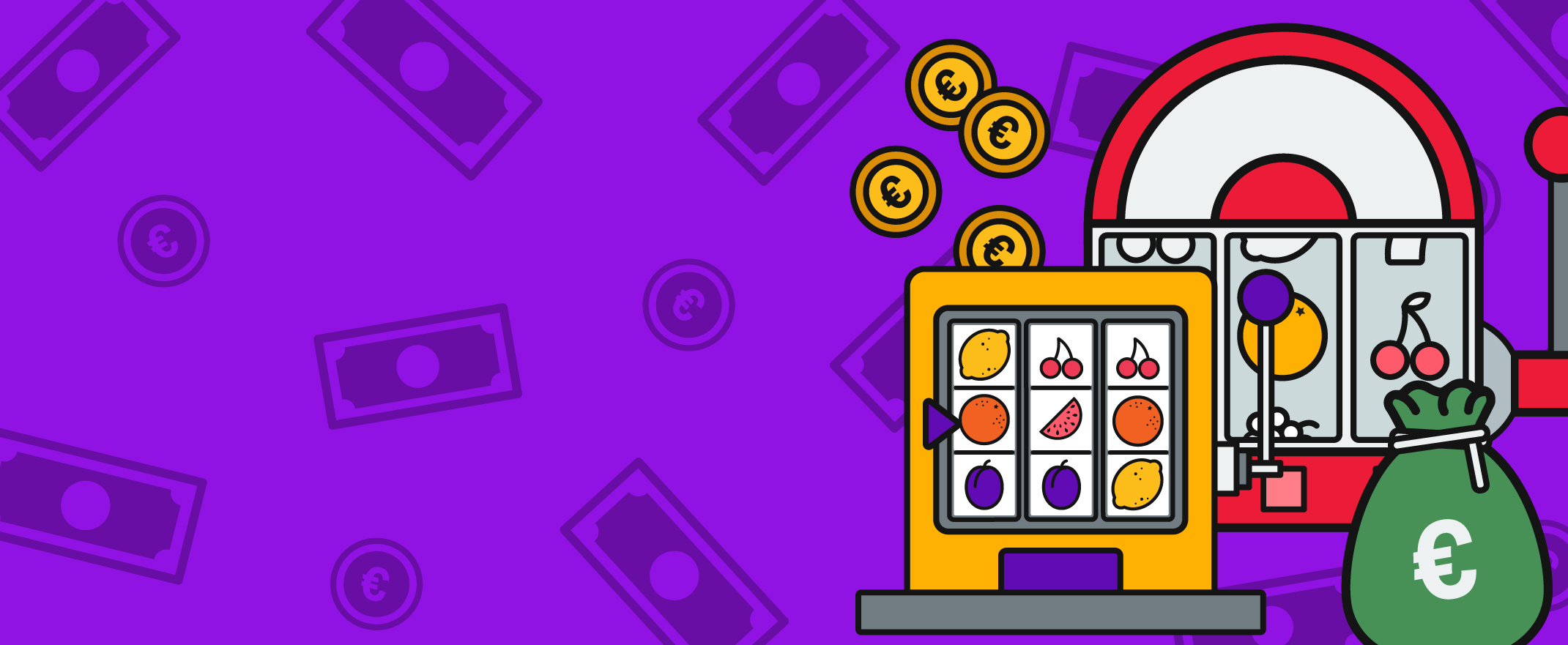
How to choose the right slot volatility for you?
To provide you with a stellar gaming experience, we’ve put together a quick table below where we’ve listed when you should play each volatility category slot to get the most out of your gameplay.
VOLATILITY | WHEN SHOULD I PLAY? |
|---|---|
HIGH | You have a big bankrollYou enjoy taking risksYou want bigger wins even if they don’t come that oftenYou’re ready to stop playing as soon as you’ve used your planned budget (even if it happens fast)You don’t mind waiting for the bonus features to be triggered |
MED-HIGH | You’re looking for a balance between the win frequency and the size of the payout You’re looking for the wins at the bigger end of the spectrum Your budget is towards the top end of the scale You’ve played enough moderate variance slots to feel confident to take more risks You enjoy slots with bonus features but don’t mind slots that have fewer of them |
MEDIUM | You like playing for fun but also want to win You are a new player but feel confident to advance to riskier gameplay You have a limited bankroll but still want to win big You like both, frequent wins and bigger rewards You like slots with free spins and other lucrative bonus rounds |
| LOW-MED | You could stretch your budget slightly to play riskier games You want to have fun with more added thrills You’re new to slots but want to take your gaming up a level You’re interested in bonus games |
LOW | You’re playing with a small bankrollYou want to have funYou want to play for as long as possibleYou want to win often (even if wins are small)You don’t want to wait a long time for features to be triggeredYou’re new to slotsYou don’t enjoy taking big risks |
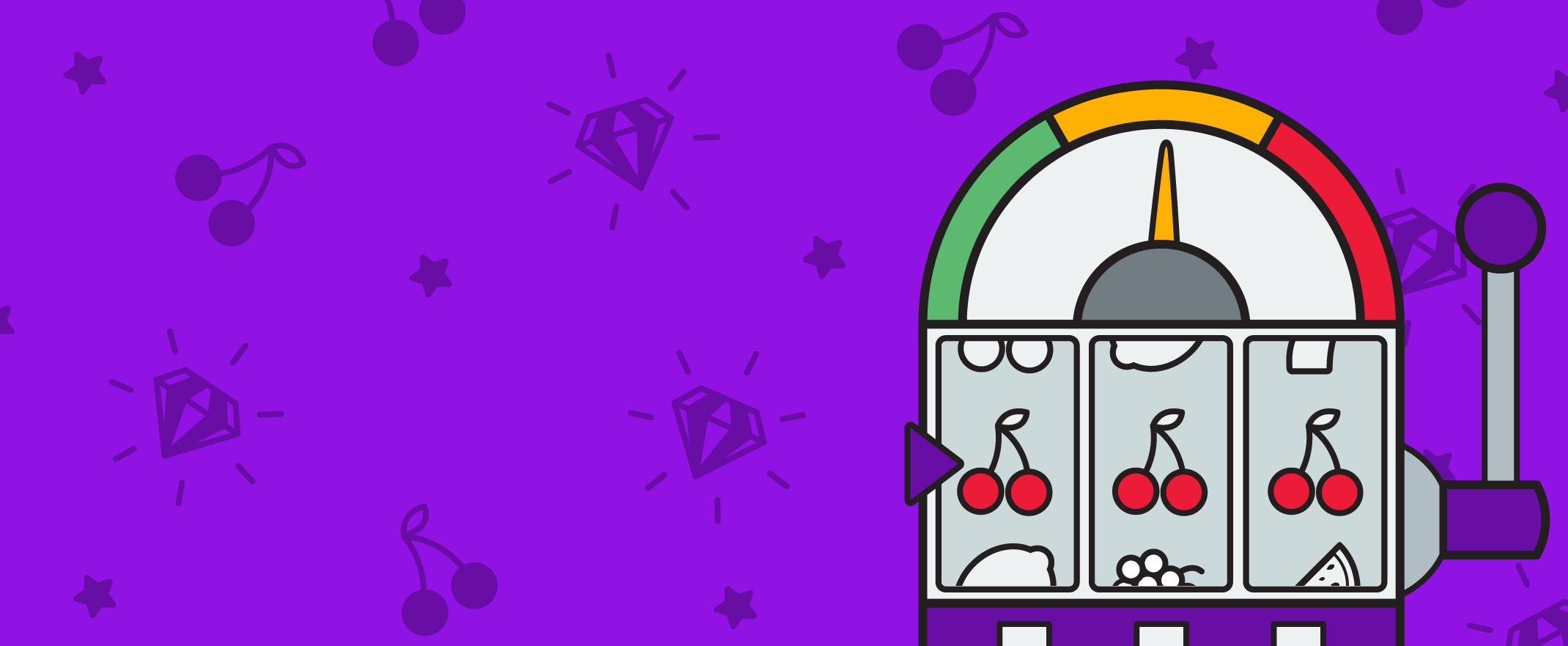
Why is volatility important in slot machines?
Volatility is important because it determines the risk level and frequency of payouts, helping players choose games that match their playing style. Combined with the return to player (RTP) percentage, which shows the long-term payout potential, understanding volatility gives players a clearer idea of the risks and rewards. However, RTP can be less reliable in high volatility slots due to their unpredictable payout patterns, making it essential to consider both factors when choosing a game.
Best Online Casinos To Try Different Volatility Slot Machines
All of the listed casinos here have slots with the three different levels of volatility – low, medium and high. We made sure to only list sites that have lucrative promotional offers and stellar customer support to offer you an excellent experience. They’re also regulated by strict gambling licenses that make sure their games and policies are as fair as can be.
JohnSlots aim to help players make confident financial decisions with ease. Our expert reviews and slot tests are free of charge and we strive to be fully transparent, unbiased and accurate. Our seasoned team of over 12 experts follows strict criteria when rating and reviewing all casinos and slots. Our reviews are backed by rigorous analysis involving 8+ hours dedicated to researching and 16+ hours of data collection and verification.
To be able to provide quality services with no extra costs for players, we enter into paid partnership for product placement with the casino operators listed on the website. Additionally, we may receive a commission when a user clicks a link and makes a purchase. This does not affect in any way our independent and honest slot sites reviews and recommendations.
-
 Poker tournaments
Poker tournaments -
 Free online poker games
Free online poker games -
 Beginner friendly
Beginner friendly
Good Welcome Package
-
 Over 1000 slot games
Over 1000 slot games -
 Generous welcome offer
Generous welcome offer -
 Weekly promotions
Weekly promotions
100% up to €350 + 100 FS
-
 Classic slots
Classic slots -
 Easy registration
Easy registration -
 Low wager
Low wager
Bonus 100% up to £150 + Free Spins
-
 Many Crypto Options
Many Crypto Options -
 3000+ games
3000+ games -
 Classic slots
Classic slots
100% up to €500 + 200 Free Spins
-
 Wide variety of slots
Wide variety of slots -
 Provably Fair Games
Provably Fair Games -
 900+ casino games
900+ casino games
100% up to €100
-
 Easy registration
Easy registration -
 Same day payout
Same day payout -
 Great mobile app
Great mobile app
Bonus up to 150%
-
 Instant play
Instant play -
 Live Casino
Live Casino -
 High RTP Slots
High RTP Slots
Bonus up to 100 Free Spins
FAQs
Volatility, also referred to as variance, in slot games is an indicator of the level of risk associated with the game. It helps predict the frequency and magnitude of potential wins. Higher volatility slots tend to offer larger but less frequent payouts, while lower volatility slots often provide smaller, yet more frequent rewards. The importance of volatility lies in its influence on your overall gaming strategy, including managing your bankroll, assessing your risk appetite, and understanding the likely frequency of wins.
Volatility in slot games can be broadly categorized into five types: high, med-high, medium, low-medium, and low. This classification is beneficial to players as it allows them to pick games that align with their preferred risk level and gaming style.
Some slot games known for their high volatility include Dead or Alive and Immortal Romance. Games such as Gonzo’s Quest and King Kong Fury fall under the med-high volatility category. Average volatility games provide a balance between the frequency and value of payouts. Low-moderate volatility games are known for their frequent, lower-value wins. Finally, low-volatility games like Starburst and Big Bad Wolf offer fast-paced gameplay with numerous small wins.
In addition to volatility, there are several other factors that can influence your choice of a slot game. These include the paytable, prizes, the maximum bet, and the availability of a demo mode. It’s also critical to look at the game’s Return to Player percentage (RTP), which represents the theoretical percentage of returns to the player. Together, RTP and volatility play a crucial role in your winning probabilities in a slot game.

